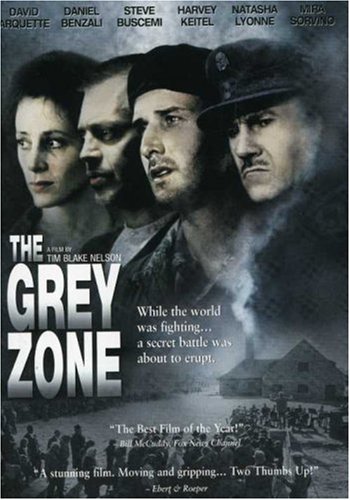
Mr. Gallagher's "Facing History and Ourselves" course is easily one of the most thought-inspiring courses I have ever taken. It challenges us to put view history from an alternate perspective, something that is extremely difficult to do. I'm not sure if I was ever successful in completely putting myself in another's situation, but the films we viewed certainly gave me a new perspective on what was actually going on.
I think the greatest thing that I will take away from the course is how the willingness of people to become bystanders enables perpetrators to enflict harm on others. I think I also realized how necessary it is to be willing to step in to protect a victim that isn't capable of protecting themselves alone. This point is made clear by how the victims of the Holocaust chose to live their lives in the camps. When they minded their own business it was like they were each killed alone, all at the same time. When they bonded together, like the revolt shown in "The Grey Zone", they died fighting together and attempting to do something great.

During this semester-long course I discovered a song that I feel applies to our subject material. Shad K's "I'll Never Understand" is a song referencing the Rwandan Genocide, and above all emphasizes the power of forgiveness. This is another lesson I learned during this course. It is impossible to live a full life without being able to forgive those that have hurt you. It's an extremely powerful song and I would recommend it to those who have time to listen to it.

One class that I especially appreciated was Mrs. Elliott's Blue eye/Brown eye experiment.I found it incredibly interesting how kids reacted to being told they were better or worse than someone else simply because their eyes were a different color. I found it interesting how the prison Sociology class identified with the minority group in the experiment, comparing the kids' reactions to their own. The one part that will always stand out to me was the little girl making the saddest face everytime she was told what she could not do. To me, this showed how she knew what was being done was unfair, but was not willing to speak out. I felt like this was a common theme throughout the class, from the Milgram experiment to the Jews in the concentration camps. I believe that the most important thing I've learned during this course is that when no one else is going to make a stand you need to stand up for yourself.

I think the most memorable film from this course was "The Grey Zone". One scene that particularly stood out to me was the one of the Jewish workers beating an inmate to death. I hated how the worker expected the man to take his death in stride like thousands of others. Another thing I disliked about this exchange is how no one else supported the man as he demanded to know what was going on. This showed me that either people were too afraid to stand up or that the Nazis had truly convinced them that they would be showered and fed. Another scene from this film that I will remember was the group of female workers being lined up and shot. Watching one of the women willingly run into the electric fence showed me the depth of the mental stress that she was facing. I can understand why she would not want to live anymore, but I would like to think that in a similar situation I would try to give my life for a cause. Similar to the male workers being laid out on the ground and shot, I feel as though it is one of the worst ways to die. I would like to think that I would try to at least fight back, but I also feel like at a certain point I would be ready to give up. This thought bothered me, that the Nazis has abused some Jews so badly that they wanted to no longer exist.
A third relevant classroom experience was watching actual footage from the concentration camps. Watching the bodies being piled in the graves was gruesome. The Nazi workers seemed more or less uneffected by moving the piles or starved bodies, a task that I can't even comprehend having to do. I feel like while watching this footage I truly realized the gravity of the concentration camps.

These three films provided me with insight into what the Holocaust was really like. I believe I will take away an understanding of hoe being a bystander enables a perpetrator, and how standing up for a victim is a small act that can go along way. I hope I am able to incorporate this knowledge into my life, hopefully to improve the situation of those around me and myself.
No comments:
Post a Comment